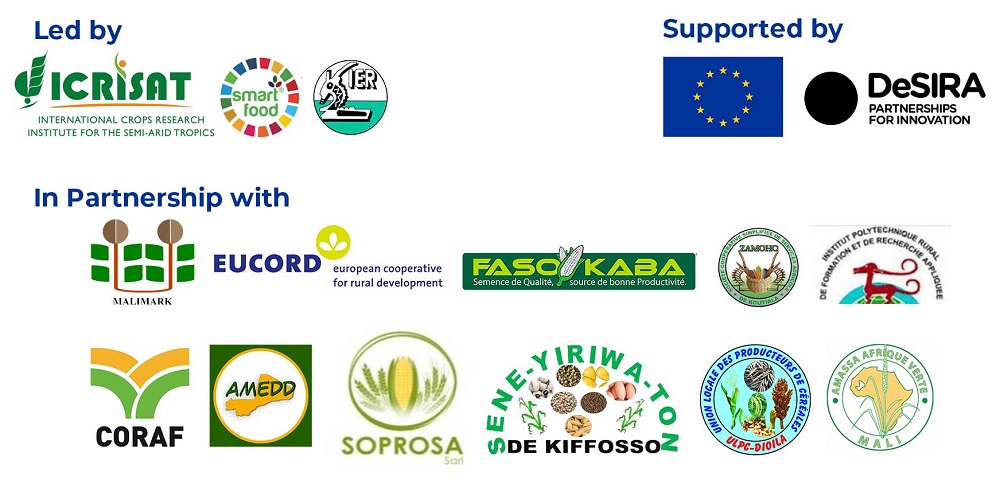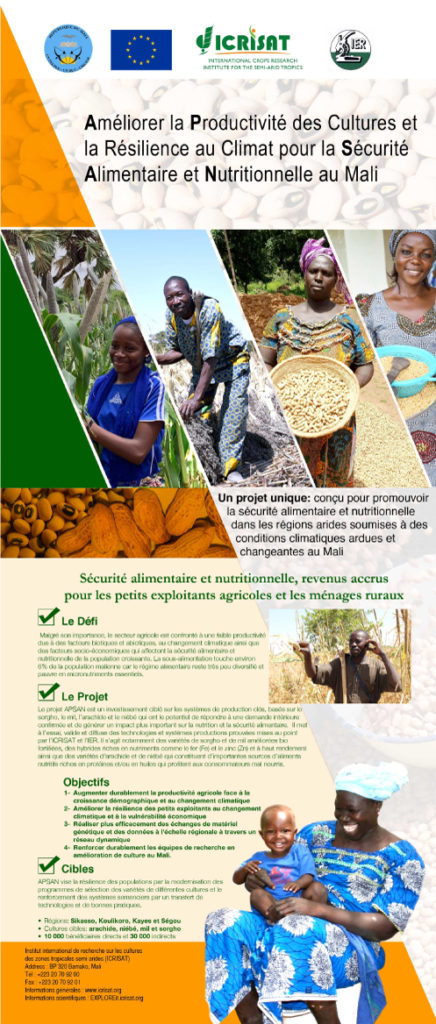Background

In Mali, agriculture sector employs a large proportion of the population and contributes to about 42% to the Gross Domestic Product. Despite its importance, this sector is challenged by low grain yields of main crops resulting to food deficits due particularly to climate change and variability, biotic and abiotic stresses and poor access of farmers to improved technologies such as high-yielding varieties.
The targeted environment is also characterized by a weak formal seed system and inefficient conventional methods in breeding programs, which are relying on poorly equipped technical platforms leading to a slow replacement of the old varieties in the context of climate change. Therefore, investment in the modernization of crop improvement is essential to respond to market signals and take advantage of technological advances that will allow being more effective in developing resilient crops adapted to local environments and needs.
In addition, there is a great potential of opportunities in the agri-food and seed production technologies that can create jobs and provide supplementary benefits to the seed companies and farmers’ organizations around high yielding varieties. Facing these challenges, APSAN project aims at improving the productivity of crops such as sorghum, pearl millet, groundnut and cowpea through modernizing crop improvement programs and strengthening of seed systems, technology transfer and market access.
OUR PARTNERS


